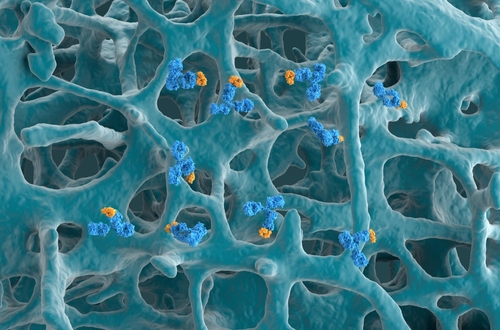
In a recent study led by Dr. Tyler Pitre, researchers sought to compare the efficacy of biologic asthma treatments. Based on their analysis, they concluded tezepelumab and dupilumab effectively reduced asthma exacerbations; however, biologics did not significantly improve exacerbations in patients with low eosinophils, the team noted. Their findings were published in the Annals of Allergy, Asthma & Immunology.
The network meta-analysis included 26,630 total patients from 64 randomized trials published to the Medline, Embase, Central, and ClinicalTrials.gov databases by May 31, 2022. Researchers compared treatment groups via absolute risk differences per 1000 patients and relative risk (RR) ratios as well as mean differences (MD) in continuous outcomes.
Biologic Asthma Treatments Effective for Many Patients
Participants with eosinophilic asthma phenotype had 329 and 319.6 fewer exacerbations per 1000 patients when treated with tezepelumab (95% CI, 272.6-366.6) and dupilumab (95% CI, 272.6-357.2), respectively, compared with patients treated with placebo.
Both tezepelumab (MD, 0.24 L; 95% CI 0.16-0.32) and dupilumab (MD, 0.26 L; 95% CI, 0.21-0.29) also improved forced expiratory volume in 1 second (FEV1) compared to placebo. The researchers ascribed “high certainty” to both of these findings. In addition, tezepelumab (95% CI, 94.53-120.56) and dupilumab (95% CI, 4.11-124.67) led to 110.97 and 97.27 fewer hospital admissions per 1000 patients, respectively, compared to placebo.
Furthermore, authors noted that biologics probably did not improve asthma outcomes in patients with low eosinophils, with a MD of 0.1 L for both tezepelumab (95% CI, 0.0-0.19) and dupilumab (95% CI, 0.0-0.20). Authors ascribed these conclusions “moderate” and “low” certainty, respectively.
“Tezepelumab and dupilumab are effective at reducing exacerbations,” the authors summarized. “For patients with low eosinophils, however, clinicians should probably be more judicious in use of biologics, including tezepelumab, since they probably do not confer substantial benefit,” they closed.
Browse More Recent News in Asthma Research







 © 2025 Mashup Media, LLC, a Formedics Property. All Rights Reserved.
© 2025 Mashup Media, LLC, a Formedics Property. All Rights Reserved.